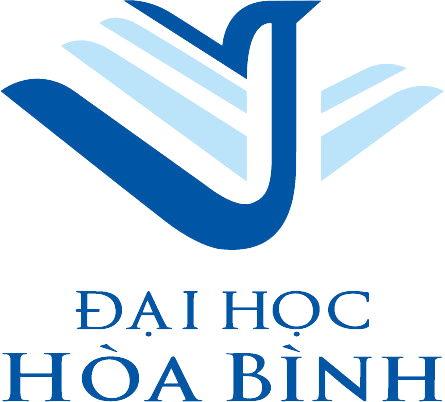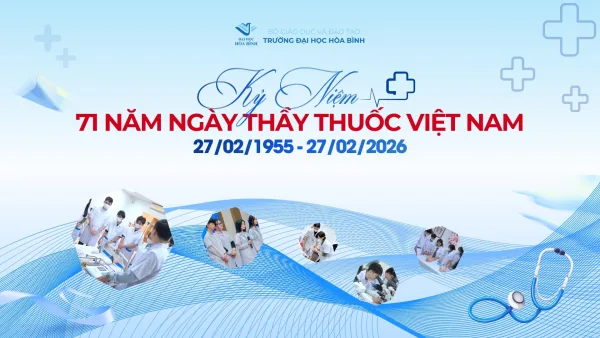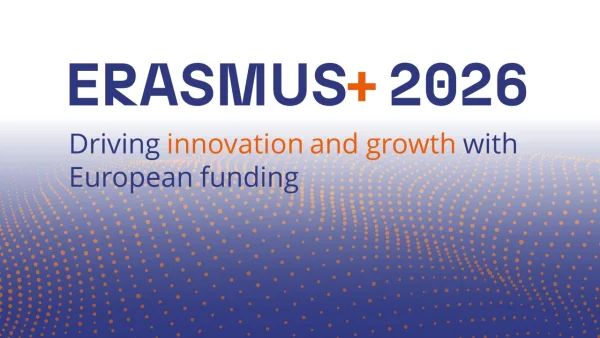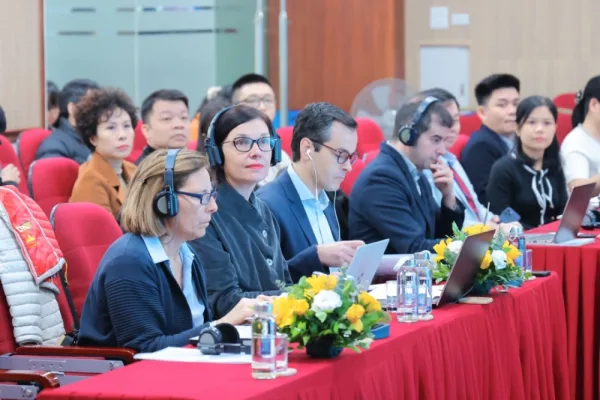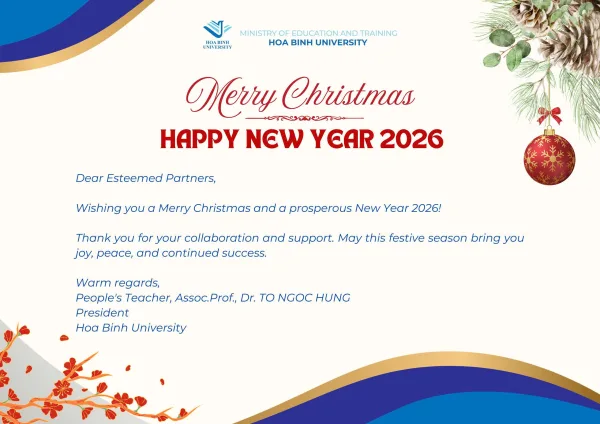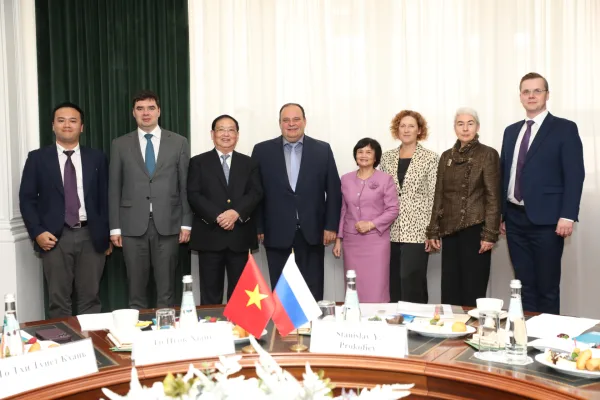Insights from Prof. Tô Ngọc Hưng at the First World Public Assembly in Moscow
The President of Hoa Binh University in Hanoi presented a paper at the First Global Public Forum held in Moscow, Russia. Over two days, from September 20 to 21, 2025, a delegation from Hoa Binh University participated in this significant event at the invitation of the Secretary-General of the World Peoples’ Association. The delegation was led by Prof. Tô Ngọc Hưng, Vice Secretary-General of the Eurasian Peoples’ Association (now known as the World Peoples’ Association), who delivered a report on strategic breakthroughs for a generation of global citizens, emphasizing education that integrates science and technology for sustainable development.
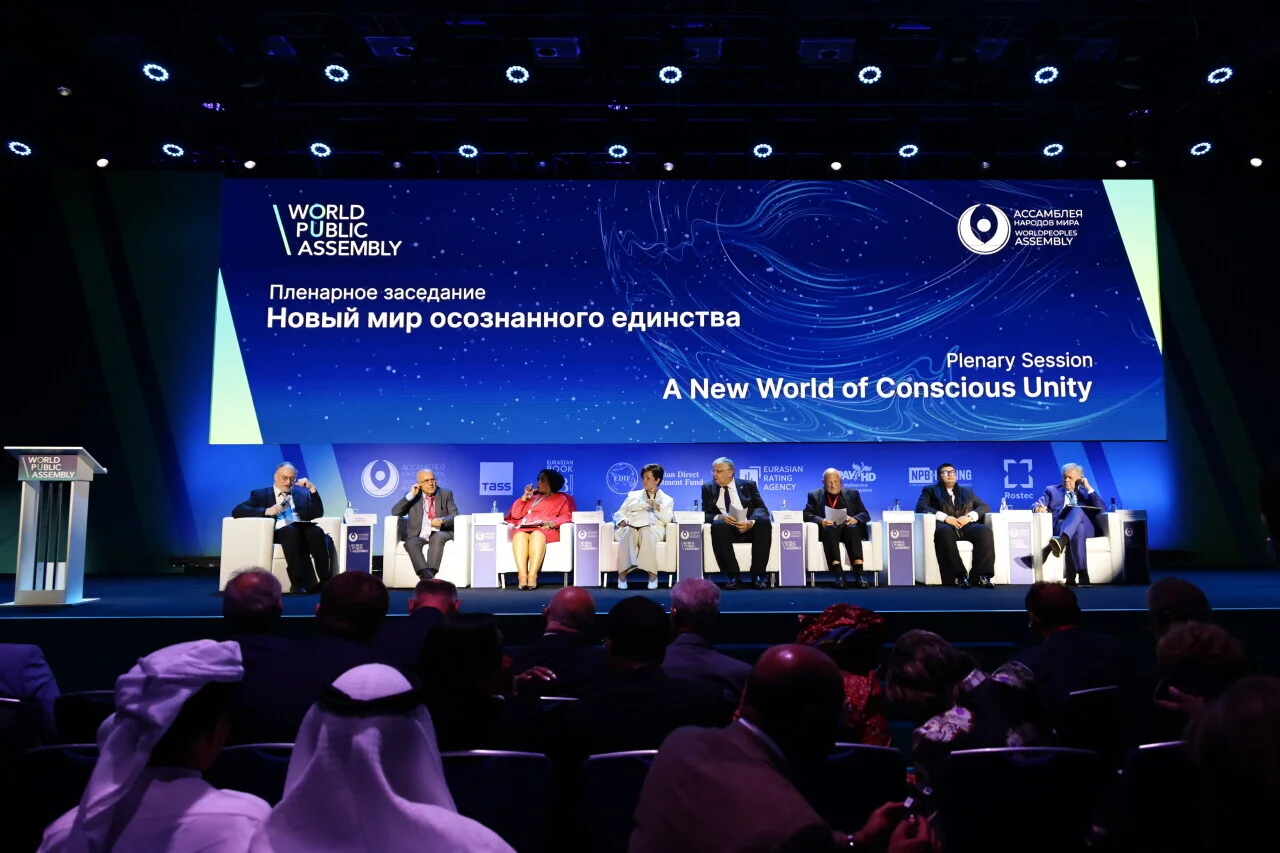
The First World Public Assemby (WPA) attracted 4,000 delegates from 150 countries, featuring 60 sessions including plenary meetings, thematic discussions, and parallel sessions. Key figures at the event included Dr. Andrey Belyaninov, President of the World Peoples’ Association, and Mr. Miguel Ángel Moratinos, High Commissioner for the Alliance of Civilizations at the United Nations, along with representatives from various international organizations and the Russian Federation.
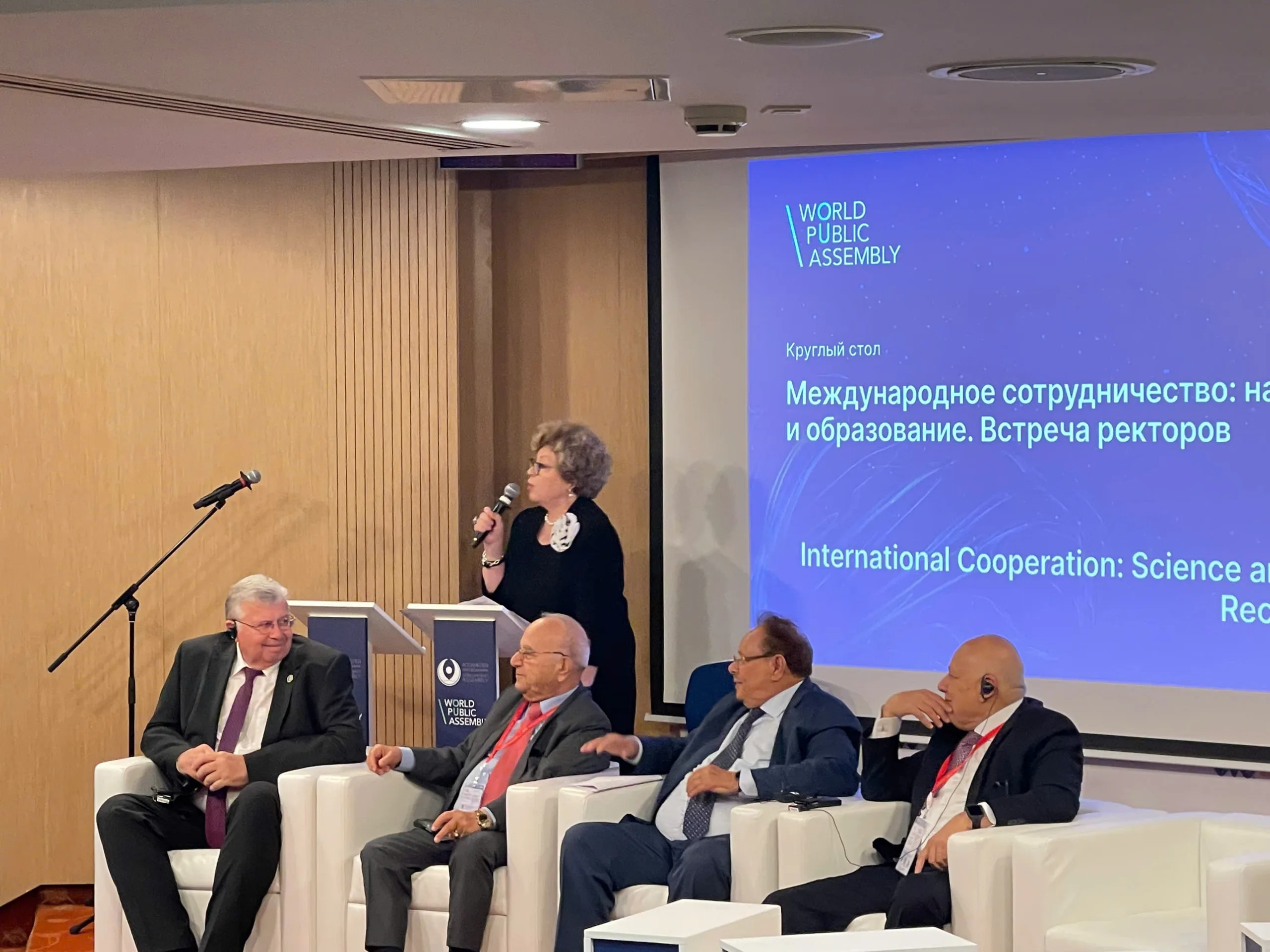
The World Peoples’ Association (WPA), formerly the Eurasian Peoples’ Association, is an international organization focused on public diplomacy. It implements initiatives and projects that promote collective efforts to enhance cooperation among nations in a multipolar world. The Global Public Forum serves as a platform for sharing initiatives, projects, and programs from governments and civil society aimed at fostering peace, strengthening friendship among nations, and promoting economic development based on mutual trust and respect for cultural diversity.
The main theme of the Forum centered on collaborative approaches and frameworks aimed at creating “A New World of Conscious Unity”. Plenary sessions focused on discussing core issues, outlining value frameworks, and identifying collaboration trends with governmental agencies and civil society, as well as establishing channels for cooperation among nations in culture, science, and education.
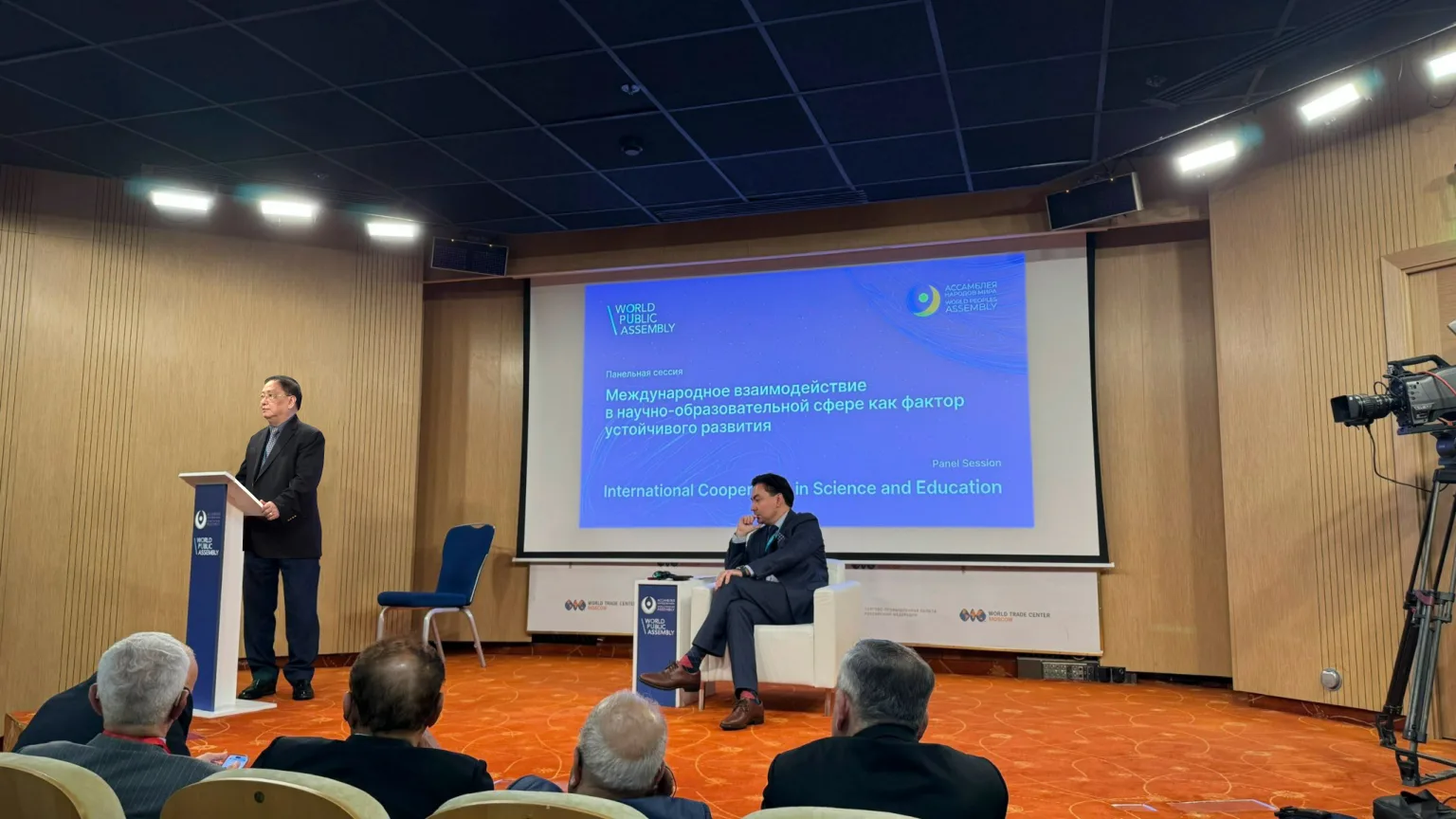
As part of the overarching theme of the Forum, Prof. Tô Ngọc Hưng, Vice Secretary-General of the World Peoples’ Association and President of Hoa Binh University, delivered a presentation on the integration of higher education with science and technology. He noted that in Vietnam, there is a growing emphasis on science, technology, innovation, and reforms in the education system.
The Politburo’s Resolution No. 57-NQ/TW, issued on December 22, 2024, marks a significant shift in the strategy for the development of science and technology. This resolution aims to eliminate bottlenecks and create incentives for the comprehensive development of the nation. Resolution No. 71-NQ/TW, dated August 22, 2025, sets ambitious goals for educational reform aimed at cultivating a resilient and intelligent global citizenry, contributing to Vietnam’s advancement. This serves as a foundation for restructuring higher education in Vietnam, particularly in the context of international integration and socio-economic development, guided by the principle that “talent is the nation’s vital energy.”.
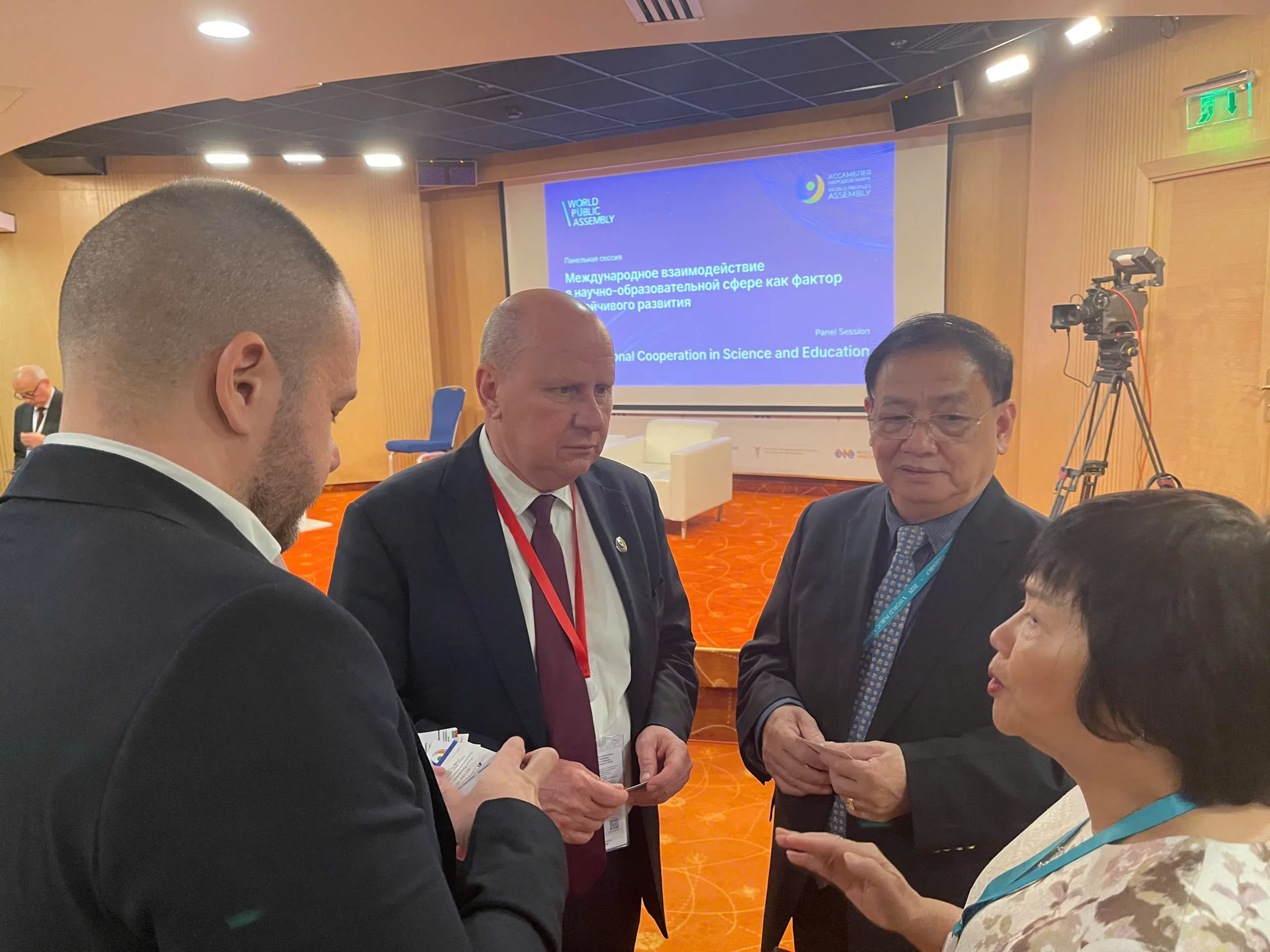
According to Prof. Tô Ngọc Hưng, two key themes in cooperation and development are the integration of education with science and technology for sustainable development. Recent statistics indicate that Vietnam has approximately 237 higher education institutions, including universities and colleges, with around 60% being public and 40% private. The Prime Minister has approved a plan for the higher education and pedagogical network for the period 2021-2030, with a vision towards 2050. This plan outlines the dissolution of non-compliant institutions, the establishment of new public universities only when necessary, and the encouragement of private universities and branches of reputable foreign universities, especially in science and technology fields. By 2030, Vietnam aims to establish two national universities, five key technical universities, 14 “core” teacher training institutions, and five regional linkages. This restructuring aims to enhance educational quality and resources, setting the stage for significant development and integration.
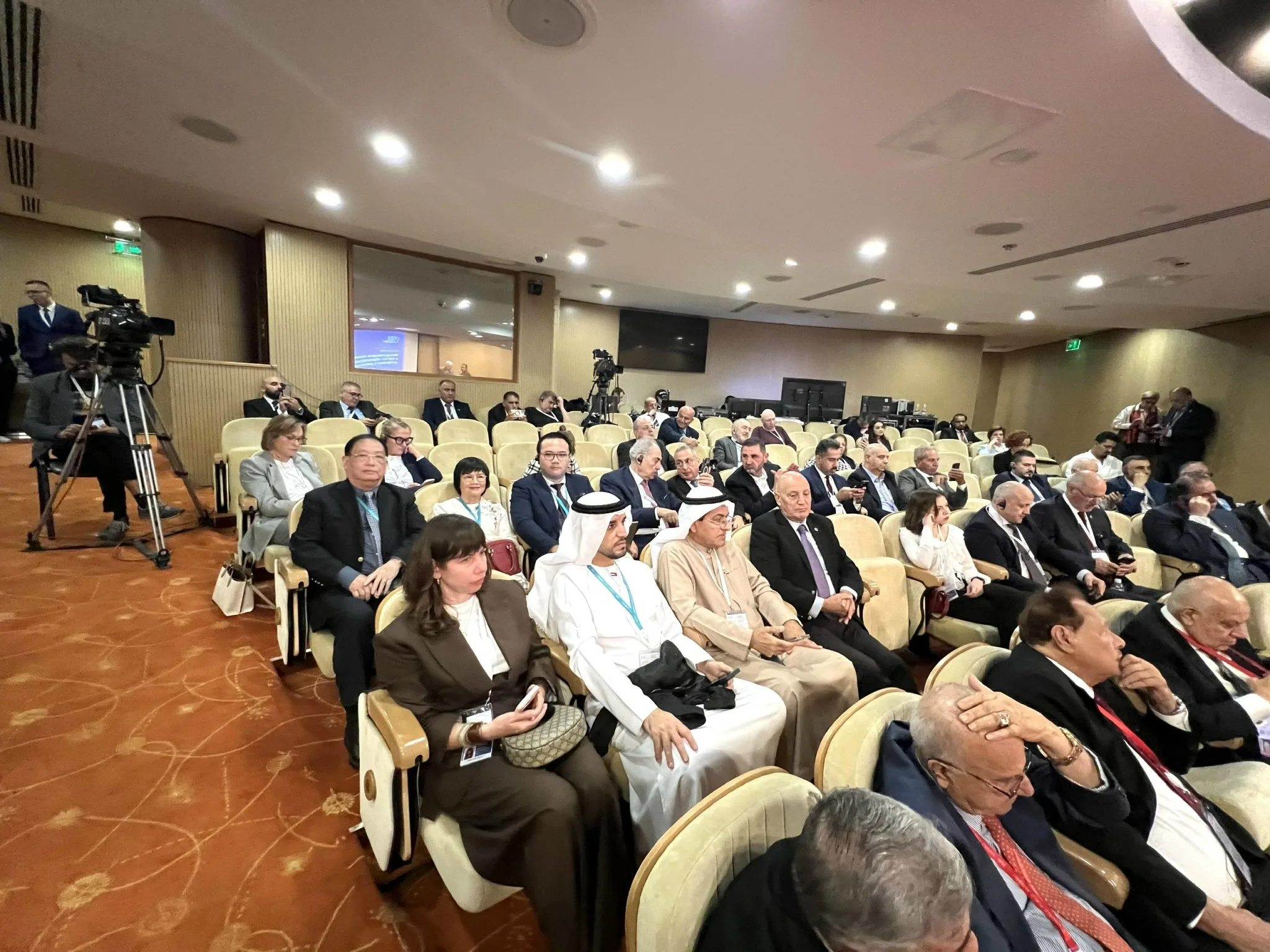
Currently, the Vietnamese government is focusing on advancing science, technology, innovation, and restructuring higher education institutions. These priorities are crucial not only for the development of Hoa Binh University but also for universities across Vietnam. As a result, Vietnamese universities are increasingly proactive in strengthening international training collaborations, particularly in programs related to Artificial Intelligence (AI) and Innovation. “We will focus on building school models that operate with corporate governance principles,” emphasized Assoc. Prof., Dr. To Ngoc Hung.
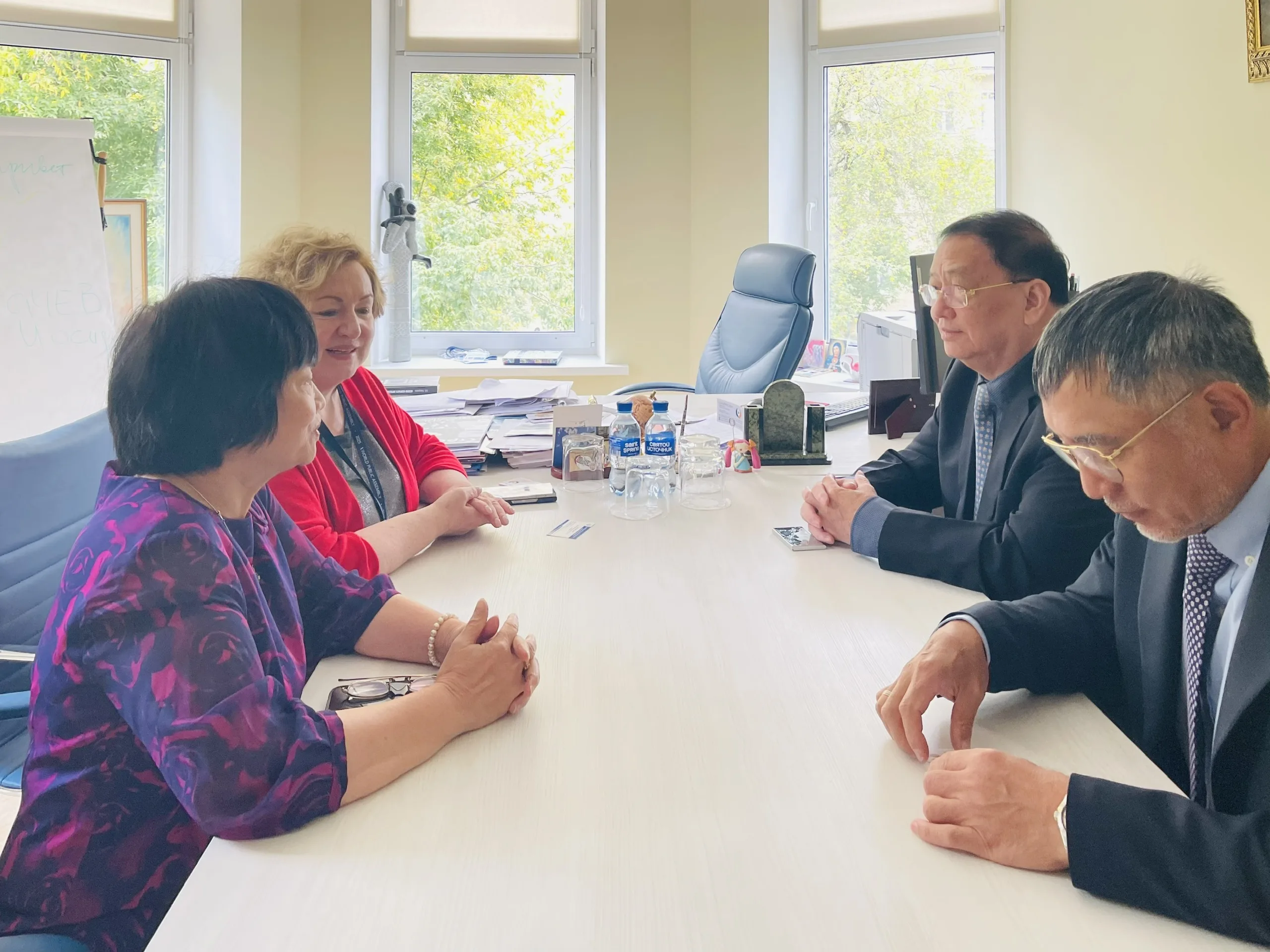
Beyond his presentation at the Assembly, Prof. Tô Ngọc Hưng also engaged in discussions regarding cooperation plans between Hoa Binh University and the World Peoples’ Association. This included cultural and language exchanges, as well as the “Day of the Association” event scheduled to take place in Vietnam in April 2026.
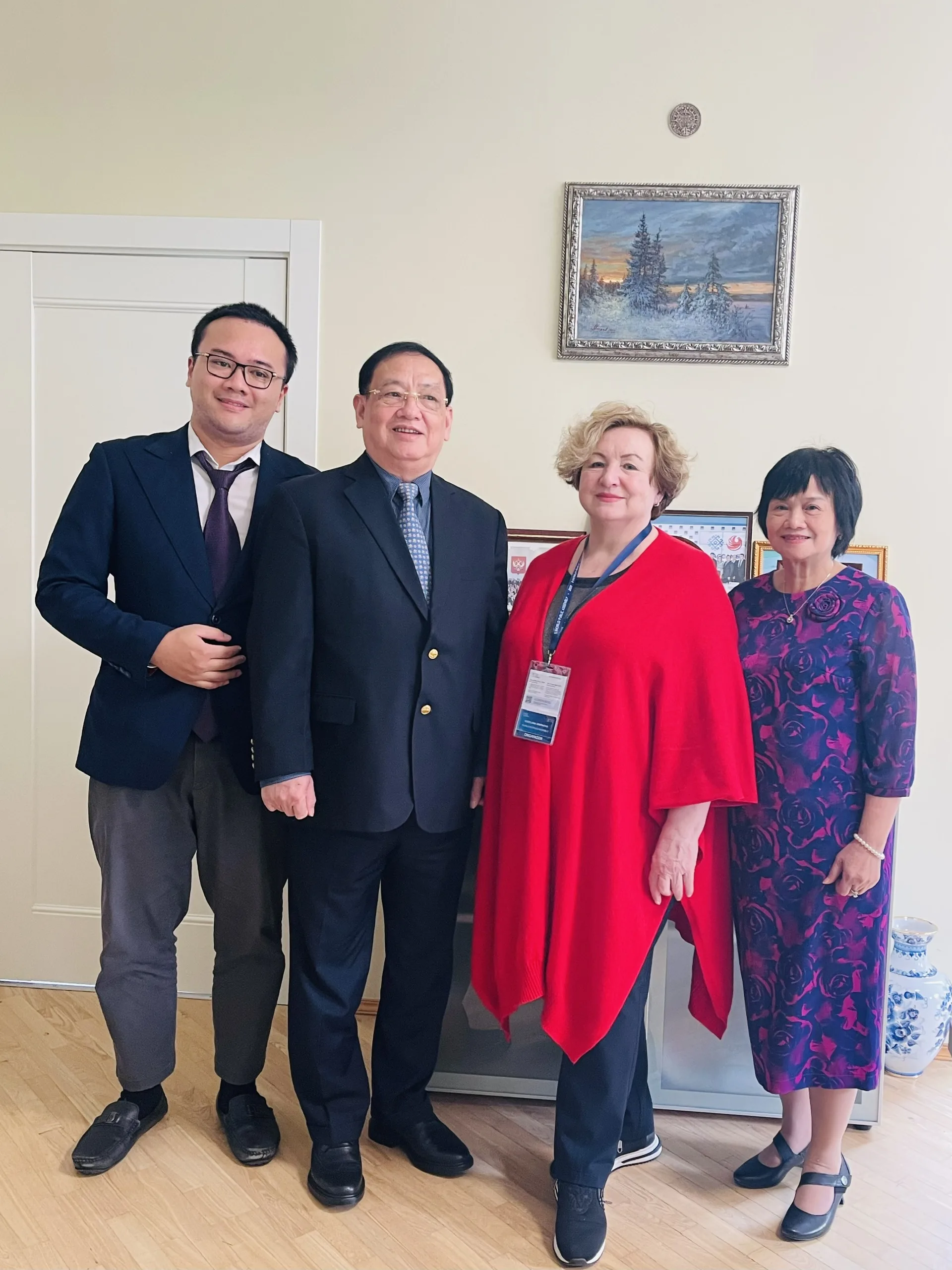
Mrs. Svetlana Smirnova commended the continuous efforts of Prof. Tô Ngọc Hưng during his tenure as Vice Secretary-General of the Eurasian Peoples’ Association for his significant contributions to education and culture. She expressed hope that part of the upcoming week’s activities would be held on the campus of Hoa Binh University. In response, Prof. Tô Ngọc Hưng affirmed that the university warmly welcomes and will proactively collaborate on the Association’s activities in Vietnam.
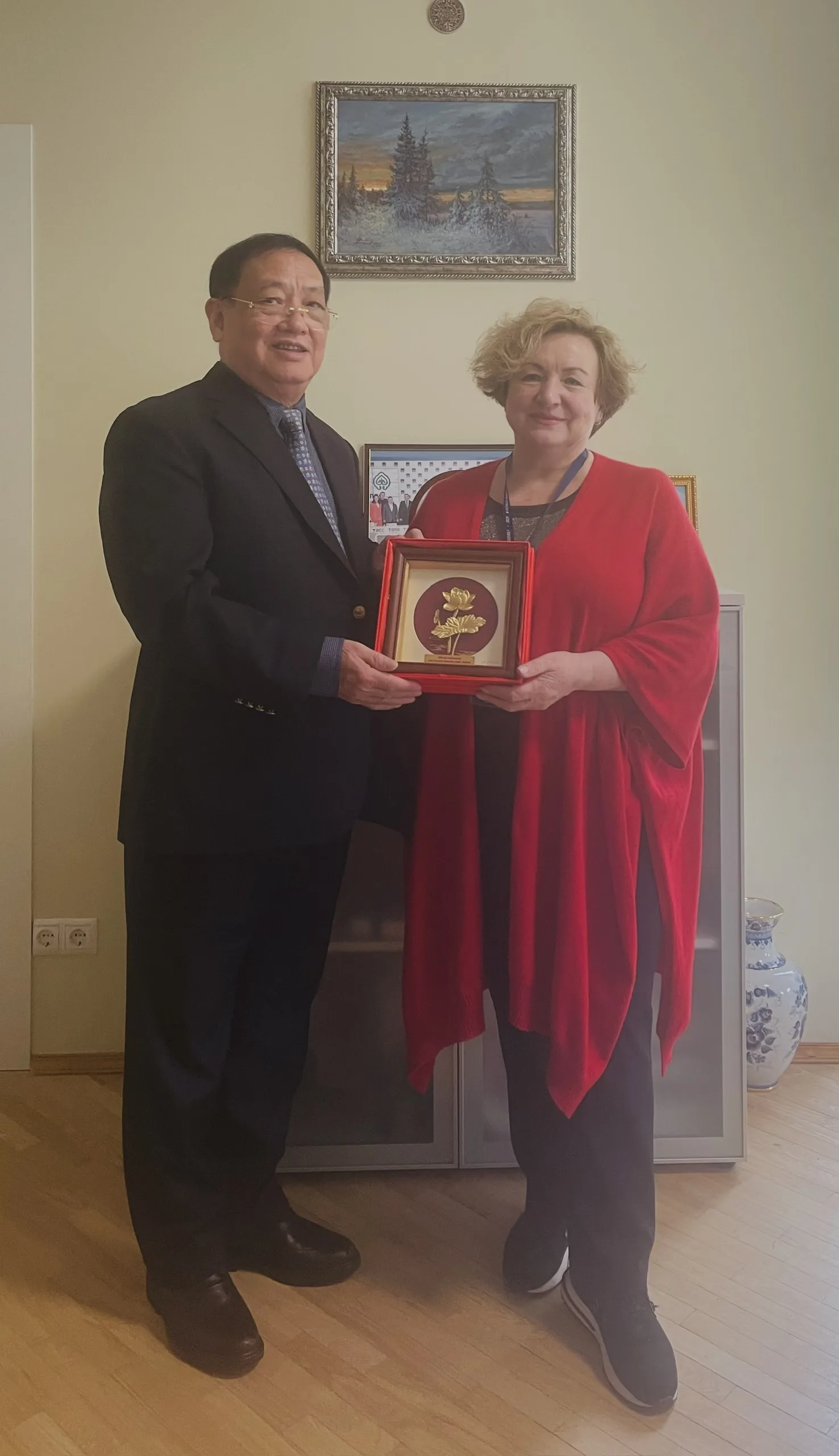
During their time in Moscow, the delegation from Hoa Binh University continued their working plans with several higher education institutions in the Russian Federation ./.
Tin, bài: DSIP-HBU
#international #vietnam #russia
#wpa #HBU #education #STI
